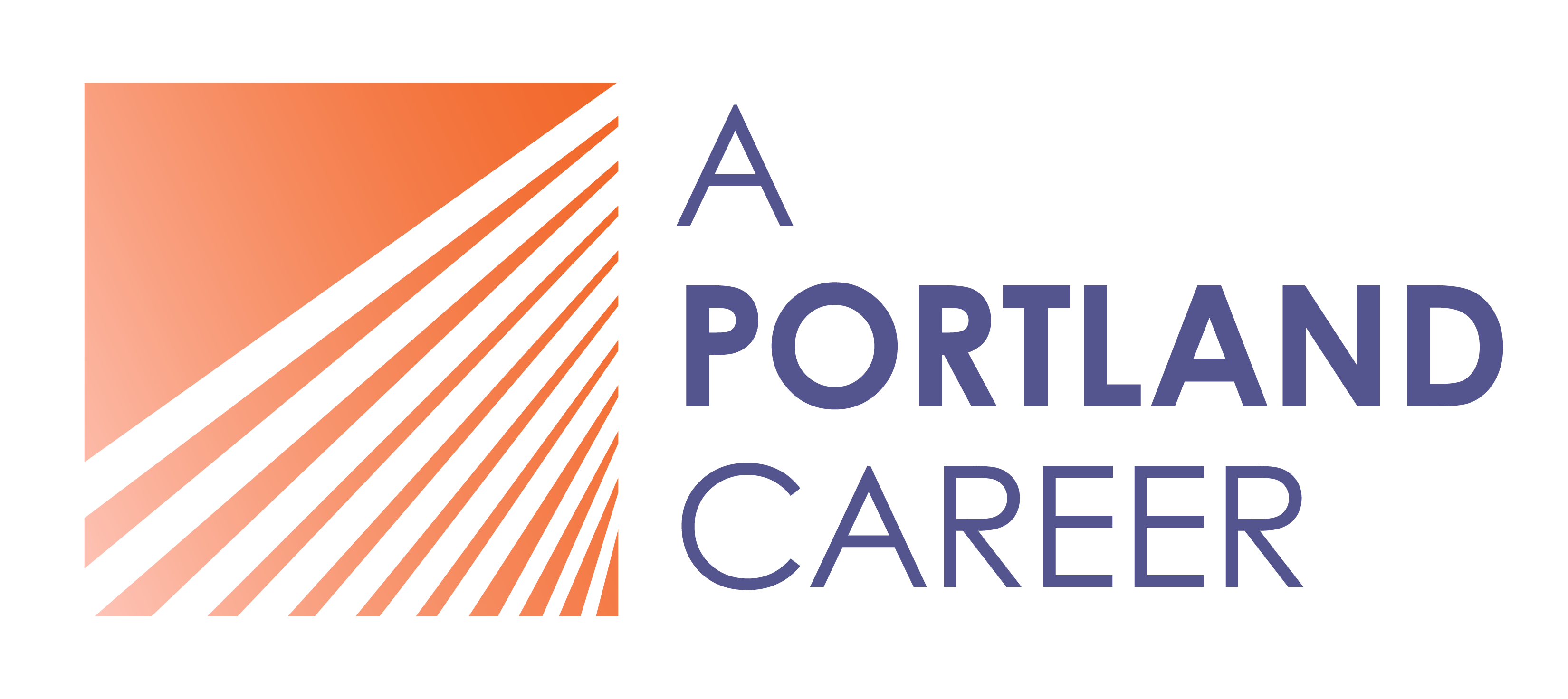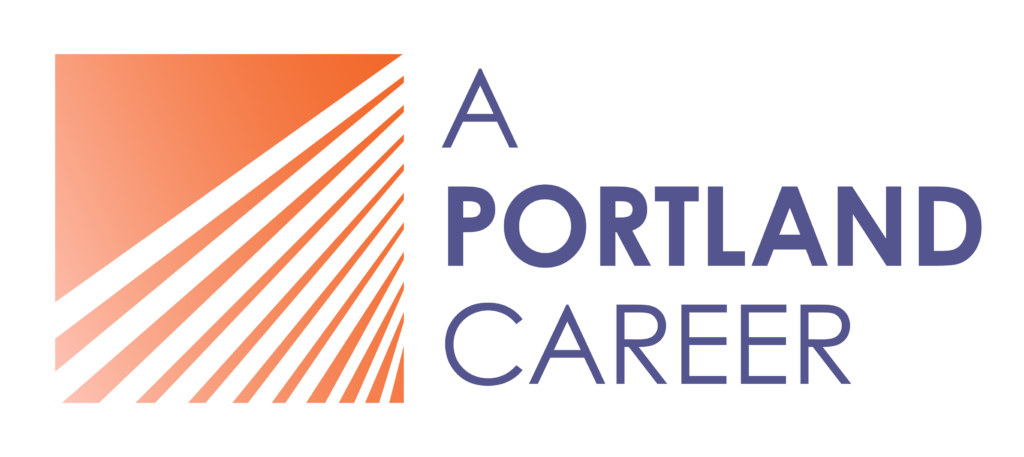LinkedIn isn’t just a glorified resume or a simple social platform. Wield the power of LinkedIn to meaningfully grow your professional network.
Demystify your desired job, career path, and industry with these 23 illuminating informational interview questions and a proven networking process.
23 Informational Interview Questions and a Networking Process that Works
By Vicki Lind, M.S., and edited by Jelena Grove and Dan Hahn, M.S.
Searching for a new career? Schedule a call and we’ll discuss your situation and how we can help!

As Richard N. Bolles, legendary career expert and bestselling author succinctly put it, the purpose of an informational interview is “to find out if you’d like a job before you go trying to get it.”
To find out if you’d like a job — or company, career field, or industry — you need to gather first-hand accounts of professional experiences. Whether you’re fresh out of college or in the midst of a mid-career transition, career experts (and journalists) agree that the best way to do that is with a conversation –– and sometimes lots of coffee.
With the right questions, a warm connection, and a little bit of background research, there’s no telling where your talk might lead you.
Here we’ll cover 20 revealing questions to ask during informational interviewing, plus expert tips to turn your conversation into a career breakthrough.
Home → Helpful Articles → Networking → 23 Informational Interview Questions and a Networking Process that Works
Here are a few more articles that can help you get started networking:
- How to Network on LinkedIn Like a Pro
- Find the Networking Style and Tools that Work for You
- How to Craft an Elevator Pitch: The Secret to Successful Networking
- Expert tips for networking in Portland, Oregon (even if you don’t like networking)
If you’re feeling stuck, or need to get over your networking dread, schedule a consult with us!
On this page:

The best questions to ask in an informational interview
There’s more to informational interviewing than simply finding out whether or not you’d enjoy a job. More broadly, you’re probably trying to figure out whether the career path you’re considering is the right fit.
You certainly will want to ask about what a typical day on the job looks like. But you should also ask questions that touch on other aspects of the career as a whole; like how your interviewees got to where they are, what industry knowledge they possess, or what the culture at their organization is like.
Here’s our list of 23 strong informational interview and follow-up questions. We’ve divided them into 4 categories for well-rounded conversation and easy cherry-picking:
Note: Don’t try to ask all of these in one meeting. Since you usually only have about 15-20 minutes to work with, we recommend selecting five or six questions per interview and mixing it up for each new person you speak to.
If you’re feeling overwhelmed about how to get started networking, connect with us for a chat. We can set up a tailored networking strategy for you based on your industry.
The average day
Professional development
Industry knowledge
Culture and networking
17. What does it feel like to work at your organization?
18. How do you feel about top leadership and the people you report to?
19. If you could change anything about your job, what would it be?
20. Is your company/organization committed to sustainability? If yes, how?
21. Can you tell me about diversity, equity, and inclusion efforts being made in your company/organization? Do the efforts feel authentic, or more of just a show?
22. Who else might be good for me to connect with, based on our conversation? Is it ok if I mention your name when I reach out to them?
23. Is it okay if I contact you again with more questions during my job search, or to see if any new positions have opened up?

How to get the most out of your informational interviews
There’s more to informational interviewing than simply knowing what to ask—and you may need to brush up on your skills before you go strolling with your list of questions into your dream employer’s office.
Don’t panic: the only thing this kind of interview has in common with a job interview is the dress code.
Preparing for your interview
Practice with people you know first! Even if their job has nothing to do with your desired industry or position. Consider it a warm-up!
Take a friend out for coffee or a drink and ask them everything you’ve ever wondered about their job, or test-drive a few questions from the list above.
Research your prospects and their employers
- Start with social media. Browse your interviewees’ LinkedIn profiles and pay attention to their career history, interests (groups and affiliations), and their primary contacts. Notice any commonalities you may have that you could refer to when you meet—but wait on adding them to your network until after the interview.
- Read their company website. Make sure you’ve asked and answered all the obvious contextual queries you may have before your meeting. You can find most of the relevant information on a company’s (or an individual’s) official site.
- For everything else, there’s Google. Maybe you need to brush up on industry developments, like your company of interest’s recent merger. Do a quick search and see what comes up. You never know when you’ll discover an interesting new talking point, question, or factor in your career decision.
Download and print this worksheet to keep track of your interviewees’ contact info, requests, and notes.
Tailor your questions
As you practice, you may discover that some answers are simply too broad to apply to your situation. You can get more specific with your questions in a few ways:
- Refine your questions by industry, position, company, and/or any other information you come across in your research
- Write follow-up questions to counter any vague answers
- Write extra-credit questions you can ask if there’s extra time
Getting referrals
Your chances of securing a time slot (and ultimately, a job) with a busy professional are higher if you can find someone who can vouch for you.
Here are some ways to tap into your network to get introduced to people of interest:
- Email, text, or call people in your professional network. Do you have friends, colleagues, or acquaintances who could offer helpful insights for your career exploration? Ask them if they’d like to meet, or if they can think of anyone else who might be interested. If you’re comfortable, see if they’d be willing to introduce the two of you over email to break the ice.
- Ask for a LinkedIn introduction. If you’ve been strategic about building your LinkedIn network, you may notice that some of your contacts are connected to people whose careers or employers pique your interest. These are the 2nd-degree connections that could offer a wealth of valuable guidance.
- Send a message en masse on social media. Use LinkedIn, Facebook, Instagram, or even Twitter to advertise your interest in a specific career path or company, and ask if anyone you know could connect you to someone who could help you with your research. If you get any responses, see if those folks would be willing to make an introduction and break the ice.
After you’ve been introduced, it’s perfectly appropriate to send a LinkedIn friend request to your prospective interviewee. If you can, send your request with a note that includes a key point about your current career curiosity or situation, and name drops your mutual connection. If they accept, you’re clear to go ahead and message them to set up a date and time.
Requesting the interview
Once your contact has confirmed it’s alright for you to approach the person in question, it’s time to draft an email, LinkedIn message, or phone script to request a time to meet.
What to include in your interview request
No matter the format, you’ll want to keep your request brief, frank, and respectful, and include these three key points:
- Brief personal introduction. Give your interviewee some context about your current situation. If you’re writing, it’s a couple of sentences. If you’re calling, no more than a minute. As you write, consider the case you’re trying to make for your career transition; how you are bringing the skills and experiences you’ve gained over time to your next career?
- Proposed time/place. Propose a 20-minute interview over coffee, a visit to the person’s place of work, or a video call.
- Offer to send questions in advance. Let the person know that you value their time, and ask them if it would be helpful to send over your questions in advance (there’s a 99% chance you’ll get a yes).
Tips for writing your interview request
- Write it out by hand first. We recommend writing what you want to say in longhand before typing it into your email or messenger app. Research shows that handwriting can stimulate the emotional and creative parts of our brains, leading to warmer, more relatable correspondence.
- Have LinkedIn open to your interviewee’s profile. If you prefer to type your request directly into LinkedIn’s messaging system, be careful to edit and review before sending. We find it helpful to look directly at the photo and work history of the person as you write.
- Calling on the phone? Write yourself a script. While you’ll want to avoid delivering the words like a robot (or a telemarketer), a script— even if it’s just bulleted talking points—will help calm your nerves and ensure you express your thoughts clearly.
- Don’t request a short-notice date. Be respectful of your interviewee’s flow and try to propose a time slot at least 7-10 days in advance.
- Make a warm call. This is a call your prospective interviewee is expecting from you, because either you or your mutual connection has let them know you’ll be calling. This is where you can briefly introduce yourself and your situation, and politely ask whether or not they’d be interested in speaking with you about their job.
As you write your communication, consider the case you are making for your career transition and how you are bringing the skills and experiences you’ve gained over time to your next career. Below are some examples of communications sent to professionals that resulted in successful informational interview experiences.
Example informational interview requests
From a referral
Dear Pat,
I met Barry Bestman at a sustainability conference last month, and he suggested I contact you about my interest in sustainable building practices. I currently work as a sales representative, designing and selling decks and backyard fences. Because I am bothered by the large amounts of beautiful cedar used for suburban fences and decks, I am exploring new career directions.
My strengths as a salesperson emerge when explaining complex choices to people in simple language and calculating use of materials; but honestly, I’m uncomfortable with hard-sell tactics, preferring an approach that deepens trust with customers and seeks to build long-term relationships.
I would be grateful for any suggestions that you might have about how I can plan a career transition. If I could contact you in the near future to “pick your brain,” I would appreciate any time you can spare. I often shop at Environmental Building Supply, so I’d be glad to come by and take you out to coffee or tea.
Sincerely,
Ruth Chapman
From a previous encounter
Dear Ms. Rydell,
I really enjoyed meeting you after your presentation at the PRSA luncheon last month. Your talk was very inspiring, particularly the part where you described the campaign you organized to raise awareness about emergency preparedness. I followed up your suggestion to read Stanford’s new book on the psychological impact of 9-11 and found it riveting.
Throughout my career in insurance, I have volunteered for nearly every committee related to helping people think about preparation for the unexpected – from hostile colleagues, to war, to volcanoes. In preparation for a career change, I returned to college and have a freshly minted BA in communication.
I am now researching the field of public relations in the nonprofit sector. I would welcome the opportunity to hear more about your insights into the profession. Your position sounds very much like the type of work I’d like to pursue eventually.
Thank you for considering this request. I’ll contact you next week to see if we can schedule a time to meet.
With appreciation,
Ronnie Brown
Sample telephone script based on referral
Hi, my name is _________________________. I am in a job club with Dominique Talt, and she suggested that I contact you. Have I caught you at a good time? (If yes, continue.) (If not, offer to call back at a more opportune time and ask them when that might be.)
Dominique tells me you are a great person to talk to about a career in fundraising. I’m exploring this field and have done extensive research. I wonder if we might be able to have a short meeting so I could ask you about your career and get your perspective on the direction this field is taking? (If yes, continue.) (If not, suggest a phone meeting.) (If not, still, thank them for their time and end the call graciously.)
I am particularly interested in raising money for issues related to children’s health and economic opportunities. Francis said that you share my passion for these causes as well. (Wait for confirmation/let the conversation deepen.)
I would love to take you out for coffee or tea to talk about this further, or maybe we could set up another time to talk on the phone. (Confirm details for date or collect an email address for following up and firming up a date and time.)
During the interview
- Dress appropriately. Casual wear is generally fine, avoid distracting messaging or lettering on your clothes, unless you’re looking to spark a conversation related to the apparel/fashion industry.
- Don’t interrupt. But don’t be afraid to ask for clarification when faced with a vague or ambiguous statement.
- Take notes. Jot down anything you can use for reference or your LinkedIn profile later.
- Be flexible. Inevitably, at some point, an interviewee will go on a tangent and not answer a single one of your questions. Let them! It’s often better to stick out a monologue than to adhere too rigidly to your question list — you never know where a spontaneous conversation will take you.
- Bring a copy of your resume. Just don’t send your resume ahead of time unless specifically requested, and don’t start your interview by handing it to your interviewee. It’s better to wait for a natural segue or prompt –– and you can always attach it to a follow-up email with a cover letter after the fact.
Following up
Don’t wait to thank people for their time.
Even if it’s just a simple email, it’s a gesture you shouldn’t skip over. If you really hit it off and want to make sure you stay fresh in your interviewee’s mind, know that handwritten thank-you cards will never go out of style.
Hopefully, your thank you note will be the first of many exchanges. If it feels right, stay in touch and find ways to build on the connection; like sharing articles or research papers they’d be interested in.
Final Thoughts on Informational Interviewing
This kind of exploratory career interviewing serves two chief purposes: gathering information and building rapport (aka networking).
So don’t worry if you don’t get all your questions answered neatly –– if an interviewee makes a meaningful addition to your network, then the rapport you build with that person can be much more valuable than the information you didn’t get (read: the fastest route to a job offer). Besides, you can always talk to more people.
Our clients are often surprised by how much they enjoy informational interviewing, once they overcome the initial hesitation to ask for a stranger’s time. And while it can be awkward at first, keep with it and you’ll be much more comfortable (and derive more value) with the process.
Looking for more personalized career advice? Schedule a call with us and we’ll see how we can help!
Key takeaways:
- Select a set of 5-6 questions from a few different categories and write them down, and keep 1-2 bonus ones in mind in case there’s extra time
- Write a thoughtful interview request, and send your interviewee questions in advance so they can best prepare and deliver the most useful information
- Brush up on your interview skills by practicing with your friends and acquaintances beforehand
- During the interview, aim to strike a balance between tactical information gathering and spontaneous, organic exchanges
- Mind your manners; don’t propose a meeting on short notice, let your interviewee do the talking, and always follow up with a thank you
Related articles you might be interested in:
Expert tips for networking in Portland, Oregon (even if you don’t like networking)
Reframe your relationship with networking and get expert-backed tips on how to do it right in the greater Portland area.
How to Craft an Elevator Pitch: the Secret to Successful Networking
Develop a great elevator pitch as a job seeker, and get more out of the dreaded art of networking.
Find the Networking Style and Tools that Work for You
Find the networking style that works for your personality. Read more to learn how to use LinkedIn, create an elevator pitch, and organize your networking contacts.





